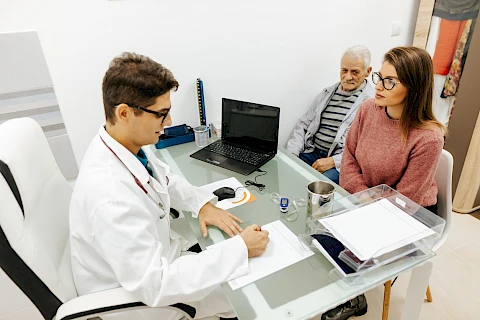
Holiday visits create cherished moments with loved ones, especially aging parents. These gatherings are more than just festive get-togethers; they're an opportunity to connect and observe how our parents are really doing. When distance separates you most of the year, it can be easy to overlook changes that hint at underlying health concerns. Our goal today is to help you identify potential issues and guide your parents to seek medical help.
Physical Health Warning Signs
Have you noticed any outward signs of physical problems? Weight loss or gain can be a major red flag, potentially indicating issues ranging from dietary problems to more serious health conditions. Assess their mobility and balance, noting if they move slower than before or have trouble standing or sitting down. These could be signs of weakness or pain that need medical attention.
Be alert to bruises or unexplained injuries, which might indicate falls or accidents that can be serious for seniors. Also, observe if they have difficulty with daily activities like dressing or bathing, as this might suggest deteriorating physical abilities or joint and muscle problems that can significantly affect their quality of life and independence.
Mental and Emotional Health Indicators
Observing emotional and mental health is just as important. Look for frequent memory lapses or confusion, which might suggest dementia or underlying health issues. Pay attention to changes in mood or behavior, such as increased irritability or lethargy, which might indicate emotional struggles.
Social withdrawal is also a concern. If your parents are avoiding friends or regular activities, it could be a sign they're feeling isolated or depressed. Be vigilant for signs of depression or anxiety, such as prolonged sadness, lack of interest in activities, or constant worrying.
Worsening of Chronic Conditions
Chronic health issues can worsen over time, and certain signs shouldn't be ignored. Increased medication usage or changes in prescriptions without clear explanations can point to deteriorating conditions that require medical review. Frequent complaints about pain or discomfort might suggest that their current treatment isn't effective.
Be aware of missed medical appointments or reluctance to discuss health issues. These might indicate denial or fear about their health, which needs to be addressed sensitively.
Encouraging a Doctor's Visit
When approaching the topic of seeing a doctor, do so with empathy. Understand that discussing health concerns can be sensitive. Use your specific observations to talk through what you've noticed, as it's easier to address concerns with clear examples.
Offer to assist with scheduling and attending appointments or to accompany them if possible. Sometimes, the process can feel overwhelming, and your support will make it easier. Highlight the benefits of preventive care, explaining how regular check-ups can prevent issues from escalating and ensure they maintain a quality life.
Is It Time for In-Home Help?
Assessing your parents' health during visits is vital to their well-being. Don't hesitate to take action if concerns arise. Your involvement can make a significant difference. And if your loved one would benefit from personal care, meal preparation, transportation to appointments, or just drop-in companion visits, we're here for you.
If you're in Lees Summit, Kansas City, or Blue Springs, contact us today at Senior Helpers Lee's Summit / South Kansas City for additional support and resources. We can be there for your parents when you can't physically be there yourself.